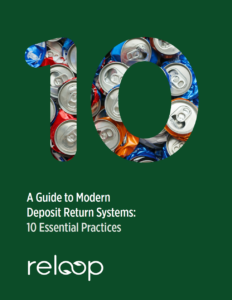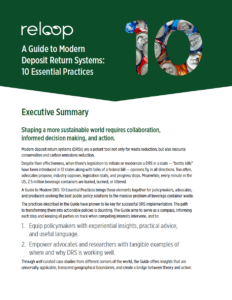
Getting the Nuts and Bolts Right
Redemption, the podcast designed to save DRS, continues to look at the operations side of DRS as laid out in A Guide to Modern Deposit Return Systems: 10 Essential Practices. This week in Episode 9 we talk with experts to find out more about Practice 8: Optimized Logistics.
Managing a DRS is no small feat. If you’ve been listening to Redemption regularly, you’re aware by now that running a successful DRS comes with a multitude of responsibilities spanning financial management, operational compliance, and system effectiveness.
When those responsibilities and their related parameters are clearly defined, the DRS works well. However, if left un- or ill-defined, the logistics of the system are compromised, leading to potential issues.
DRS system operators need to have the flexibility to manage operations as they see fit, but this flexibility should always be balanced with the need to meet system performance and legal operational requirements. Applying uniform and fair procedures, as well as those clear performance requirements, will help deliver optimized contract logistics and quality assurances at every step of DRS operations.
Redemption looked at two places that are addressing how to get this balance and the logistics right. We talked with:
- Alexis Eisenberg, Reloop Director for France and Francophonie, who helped craft the new DRS legislation in the province of Quebec, Canada
- Robert Kelman, director of Reloop Asia Pacific, who deals daily with system logistics in Australia
Subscribe and tune in to Redemption on Apple Podcasts, Spotify, Google Podcasts, and Amazon Music.
Related resources
-

A Guide to Modern Deposit Return Systems: 10 Essential Practices
10 key requirements for successful implementation of a DRS to serve as a roadmap for policymakers, advocates, and producers seeking the best public policy solutions.
-

A Guide to Modern Deposit Return Systems: 10 Essential Practices Executive Summary
Short summary of the 10 key requirements for successful implementation of a DRS to serve as a roadmap for policymakers, advocates, and producers seeking the best public policy solutions.